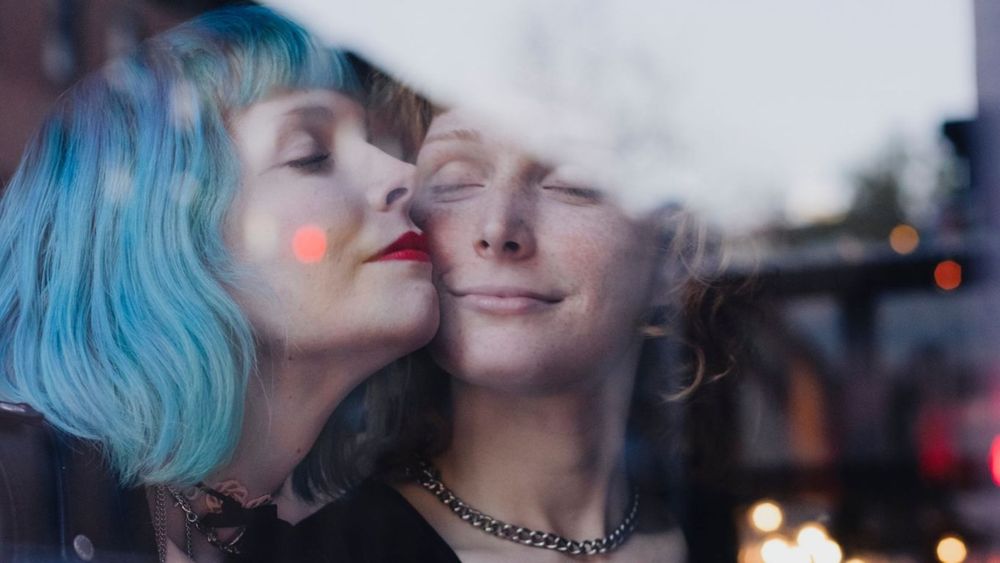How do LGBTQIA+ and vegan movements overlap? Where do they differ?
It’s Pride Month! With parades, marches, and parties happening throughout June all over the world, this month celebrates the LGBTQIA+ community. Pride honours the 1969 Stonewall riots, which were a catalyst for the gay rights movement and the creation of gay activist groups in the USA and around the world. You may be thinking, what does veganism have to do with Pride and the LGBTQIA+ community? Whilst it is necessary to note that sexuality is not a choice - whereas an individual chooses to go vegan - both movements are married by their challenging of norms, promoting inclusivity, and their mission for a more compassionate world. It is no coincidence that a large number of LGBTQIA+ people are vegan.
Social justice movements
LGBTQIA+ and vegan movements are united in their stride for social justice. Veganism is inclusive of non-human and human animals within its philosophy of harm reduction and collective liberation and, therefore, it inherently supports the LGBTQIA+ community. Hence, to choose a vegan lifestyle is to support and defend all life, and to protect those subjected to harm, violence and oppression.
Article writer for Curve Magazine, Josie Le Vay created a Facebook poll in 2017 asking people if they identified as LGBT+ and posted it in UK vegan Facebook groups. Out of the 925 responses, 66.4% said they were LGBT+, and with the number of vegans rising each year, that figure may continue to rise.
Dan Matthew’s from PETA said: “Many animal rights activists support the LGBTQ+ community, and vice versa because we identify with those subjected to society’s ignorance and arrogance”.
Identity
As well as identifying these overlaps between groups, it is important to view them as separate. In the article ‘Exploring the intersection of queer culture and veganism’ published earlier this month, Chloë Morgan looks into how individuals define their sexuality and their veganism in relation to their identity; sportsperson JP Casey, who is non-binary and vegan, states how “being vegan isn’t as much a part of my identity as being queer.” They describe how they’ve been to vegan food events with non-vegan friends, “but have attended fewer queer nights with straight friends”. They add: “I would more readily describe myself as a queer person than a vegan person”. JP Casey highlights how their sexuality is more important in relation to their identity. It is fixed, whereas veganism is chosen.
Casey further states that vegans “don’t face anything near the kind of legal and social challenges queer folk do”. Therefore, bringing them together in terms of marginalisation can be seen as rather problematic, as “it’s illegal to be queer in some parts of the world, but no one is imprisoning vegans”. There are still 64 countries that have laws that criminalise homosexuality as of March 2023 and whilst vegans who protest are often arrested, it is not illegal to be vegan.
In contrast, gut health influencer and scientist-clinician Dr Sunni Patel believes that being vegan is as much part of his identity as being queer. “[Both] play an important role in my life and make me who I am today and what I stand for.” Dissimilar to JP Casey, Patel suggests an equalness to their veganism and sexuality, both possessing a key part of their identity.
Writer Kelsie Colclough shares her experience of being queer and vegan in a society that expects conformity: “Growing up, I knew I was different in some way but didn’t have the word to describe it until I was a teenager.” She says that people think her veganism and asexuality both deprive her of something: “When you don’t fit into the image people have of how you ‘should’ live, [they] can get weird about it,” she explains.
Compassion for all
Whilst there is a similarity between the vegan and LGBTQIA+ communities as both strive for freedom, it is important to consider them as two separate movements. Protesting for equality and a compassionate world for all, they overlap, but are not inextricably related from both sides. Not all people in the LGBTQIA+ community are vegan, but all vegans should support the LGTBQIA+ community.
It is important to remember that veganism transcends the protection of and refusal to eat animals, instilling a much larger mission, to protect, defend and support all animals, humans, and sentient beings.
If you’re looking for more content pertinent to Pride Month, why not check out our interview with Fat Gay Vegan and our list of amazing LGBTQIA+ people to follow.
